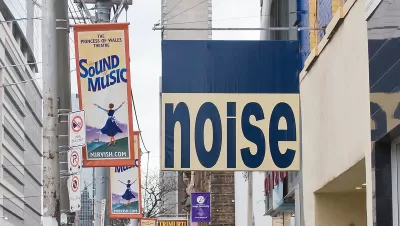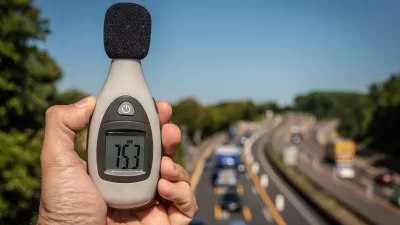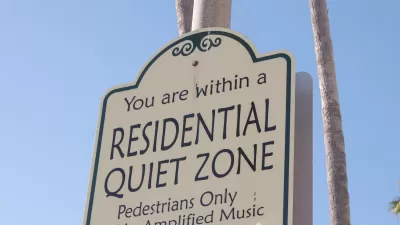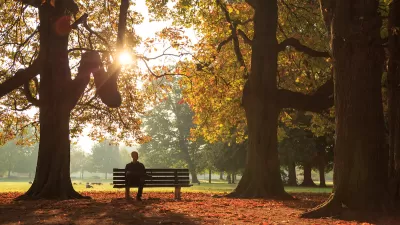Several cities are piloting programs that use machine learning to identify and understand urban noise patterns and enforce noise ordinances.

More cities are taking action to reduce noise pollution and limit vehicle decibel levels, reports Linda Poon, and the process could soon become automated thanks to new sensor technology. A Paris pilot program will install microphones and cameras that can measure decibel levels and help identify the vehicle and driver. "No decibel threshold or fines will be set during the three-month trial period, according to French newspaper Liberation, but it’ll test the potentials and limits of automating the war on sound pollution."
"By now, research has been mounting about the health effects of continuous noise exposure, including links to high blood pressure and heart disease, and to poor mental health." But despite existing noise ordinances, enforcement of vehicle sound limits has been difficult and costly for law enforcement. According to Poon, "Those obstacles have made noise pollution an increasingly popular target for smart city innovation, with companies and researchers looking to make environmental monitoring systems do more than just measure decibel levels."
In New York City, a group of researchers is using machine learning to understand the sources of noise and develop tools that cities and residents can use to get information, understand patterns, and address complaints in excessively noisy areas. With the project already showing promise in Red Hook, where residents were able to use the data to get trucking routes moved away from residential streets, the group hopes to work with the city to implement the project at a larger scale.
FULL STORY: Can Sensor Technology Cut Noise Pollution in Cities?

Alabama: Trump Terminates Settlements for Black Communities Harmed By Raw Sewage
Trump deemed the landmark civil rights agreement “illegal DEI and environmental justice policy.”

Planetizen Federal Action Tracker
A weekly monitor of how Trump’s orders and actions are impacting planners and planning in America.

Why Should We Subsidize Public Transportation?
Many public transit agencies face financial stress due to rising costs, declining fare revenue, and declining subsidies. Transit advocates must provide a strong business case for increasing public transit funding.

Understanding Road Diets
An explainer from Momentum highlights the advantages of reducing vehicle lanes in favor of more bike, transit, and pedestrian infrastructure.

New California Law Regulates Warehouse Pollution
A new law tightens building and emissions regulations for large distribution warehouses to mitigate air pollution and traffic in surrounding communities.

Phoenix Announces Opening Date for Light Rail Extension
The South Central extension will connect South Phoenix to downtown and other major hubs starting on June 7.
Urban Design for Planners 1: Software Tools
This six-course series explores essential urban design concepts using open source software and equips planners with the tools they need to participate fully in the urban design process.
Planning for Universal Design
Learn the tools for implementing Universal Design in planning regulations.
Caltrans
Smith Gee Studio
Institute for Housing and Urban Development Studies (IHS)
City of Grandview
Harvard GSD Executive Education
Toledo-Lucas County Plan Commissions
Salt Lake City
NYU Wagner Graduate School of Public Service





























